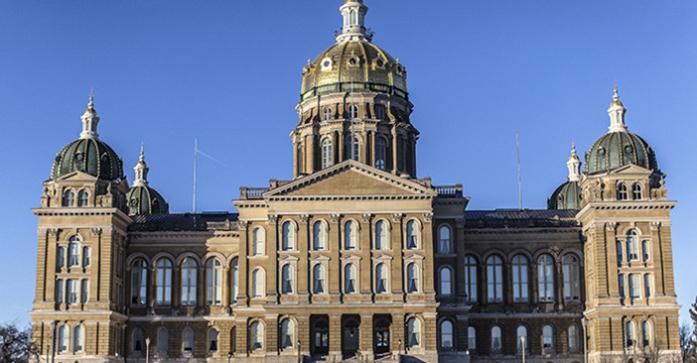Last week, The Daily Iowan reported that the state of Iowa was assigned a D-plus integrity grade by the Center for Public Integrity. According to its website, the center is a nonprofit, nonpartisan investigative news organization. Its work centers on revealing instances of corruption, abuse of power, and betrayal of public trust by prominent public and private organizations.
The D-plus grade given to Iowa is frustrating but surprisingly quite impressive. According to the organization’s report, only three states received a grade better than a D-plus, while 11 states received failing grades.
The report is extensive and covers a variety of problems associated with the lack of transparency and accountability of state governments.
Although Iowa’s D-plus score, 67 out of 100, places it as the 10th-most transparent state in the union, the report demonstrates that being 10th means very little when the whole country is overwhelmed with ethics and integrity issues.
The Daily Iowan Editorial Board believes that, even with a 10th overall ranking, Iowa government has got to do more to be more transparent with its citizens. And, more than Iowa, the federal government will have to learn effective transparency protocols for the coming months and years. With ISIS making credible and frequent threats in the aftermath of the Paris attacks, U.S. citizens will have to know more than ever that they can trust their government to operate effectively and keep the best interest and safety of the entire country in mind.
According to a CNN article published earlier this week, 31 governors, including Iowa Gov. Branstad, have now stated that they will not allow Syrian refugees into their states. The reasoning behind these statements is obvious; however, the outright denial by one member of the state’s government does not lend itself to the integrity of such institutions.
Iowa’s state government is no stranger to transparency shortcomings. For example, the state Board of Regents’ “open” process of hiring Bruce Harreld did little to further the state’s transparency recognition, with hundreds calling the regents into question for the decision. But with ISIS knocking on the front door of the Western world, threatening to begin a “home game,” as GOP presidential candidate Lindsey Graham has referred to it, the regents are the least of Iowa’s transparency concerns.
As it would turn out, the problems of state governments’ integrity are far-reaching and not exclusively the burden of those in charge.
One key finding of the report is particularly difficult to believe, “most ethics entities are toothless and underfunded. In two out of three states, they routinely fail to initiate investigations or impose sanctions when necessary.”
So perhaps it is not necessarily the fault of legislatures and state leaders so much as it is the fault of a broken system, a system that relies too heavily on keeping the American public in the dark and assuming elected officials will do what is best for the state and the country. Not necessarily the most ethical decision but the decision that these select few believe to be the logical step in solving the United States’ issues.
On a broader scale, representative democracies work on the cornerstone that those officials who are elected are elected because the citizens of a nation respect and trust them. In the tumultuous time the United States is sure to face, this system must operate as intended. When only three states score higher than a D-plus on integrity (and there isn’t a curve) the system isn’t working.



